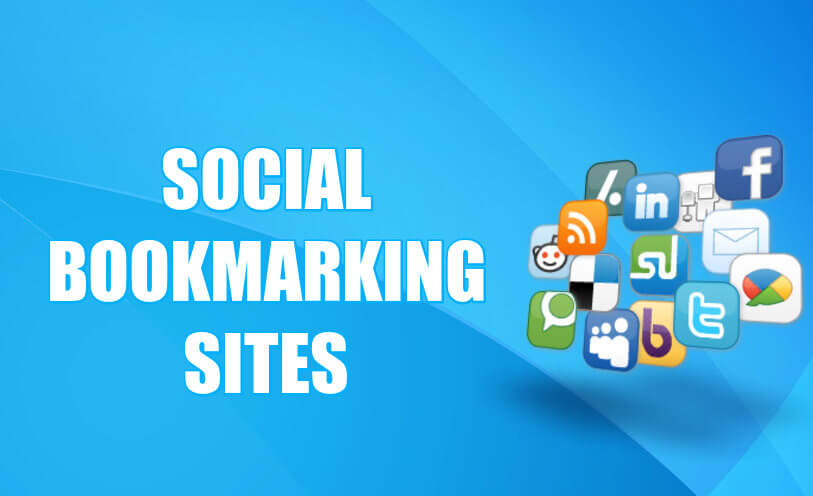Negative surveys of your business can be agonizing, both sincerely and monetarily. This is what to do about them.
It is extremely unlikely around it: awful audits occur.
What’s more, seeing a client state awful – regularly destructive – things about your business on Yelp, Facebook, Twitter, sites or pretty much anyplace else? All things considered, it sucks.
We as a whole make a solid effort to satisfy our clients, so the possibility that some are so angry with us that they decided to stand up to the world about it very well may be agonizing to manage.
Related Service Here: Buy Negative Google Reviews
Yet, today, I’m demonstrating why terrible audits aren’t so awful all things considered.
Furthermore, indeed, there is something you can do about them (however it probably won’t be what you think).
First of all: Bad Reviews Don’t Mean That You’re Bad
The main standard of managing pessimistic surveys is to not think about them literally.
That is on the grounds that as your business develops, you’re going to see increasingly more of them.
On the off chance that you have 100 audits, and five of them are terrible, and you let those five find a good pace, how are you going to manage 50 awful surveys out of 1,000, or 500 awful audits out of 10,000?
There are five significant things to comprehend that can help to reframe our considering awful audits:
1) Your Business Might Just Not Be a Good Fit for the Customer (And That’s a Good Thing).
Your business isn’t directly for everybody.
What’s more, that is an extraordinary thing, since you can’t be incredible for everybody.
So as to be the best answer for somebody, your item should be an inappropriate answer for another person.
Frequently, a terrible survey just originates from a client finding that your item isn’t an ideal choice for them.
Also, that is alright.
2) If Your Business Is a Good Fit for the Customer, Then Their Review Is a Gift.
As per an investigation by Lee Resource Int’l, for each client who whines, 26 others stay quiet.
That implies that a terrible survey from a decent client is a liberal blessing that can assist you with rolling out extraordinary improvements, and at last fulfill significantly more clients.
3) A Bad Review Is an Opportunity to Shine.
Organizations mess up. It occurs.
In any case, when it occurs, an intriguing open door opens up: on the off chance that you recuperate from the mix-up well, you can really construct a more grounded relationship with the client than you had previously.
Showcasing teachers Michael McCollough and Sundar Bharadwaj call this the administration recuperation Catch 22:
The administration recuperation oddity is the aftereffect of a positive assistance recuperation, causing a degree of consumer loyalty and additionally client reliability significantly more noteworthy than that normal if no administration disappointment had occurred.
Our Services for You – Website Designing Company in Daryaganj | Website Designing Company in Paharganj
Great client support isn’t about totally wiping out errors — an outlandish undertaking — yet about utilizing the open door made by a misstep to assemble a more profound relationship with your client.
4) The Customer Might Just Be Having a Bad Day.
We as a whole have awful days.
Also, on those days, we’re undeniably bound to lash out at others; Roger Gil, MAMFT, a conduct researcher, proposes that one of the most widely recognized ways that pressure shows itself is dislodged outrage.
On our terrible days, we’ve likely totally been that awful client.
I realize I have.
In any circumstance where you’re feeling assaulted or irritated, it’s useful to make a stride back and put yourself into your client’s point of view; a significant part of the time, their conduct has nothing to do with you.
5) The Customer Might Just Be a Jerk.
A few people—incredibly, few—are, in all honesty, jerks.
These are the clients who:
- Make individual tackles on individuals not issues. This can remember assaults for your help group, your clients or imminent clients
- Are inclined to non-valuable input, including extreme utilization of foulness. >
- Have angry upheavals.
- These are the clients you fire quickly, and proceed onward.
- Step by step instructions to Respond to Negative Reviews
- At the point when a great deal of organizations get negative surveys, their first strategy is to attempt to get the audit expelled.
- This is a horrible methodology.
A terrible audit isn’t the issue. A terrible survey is the aftereffect of an issue. The genuine issue is whatever occurred between your client and your organizations that made that outcome.
For genuine client support wins, don’t concentrate on the outcome; center around the issue.
Treat the irritated client similarly as you would an agitated client who hadn’t made some noise on the web: with sympathy, empathy and an authentic duty to making things right.
My preferred method to do this is with the strategy spearheaded by the Walt Disney Company, a business that has 135 million individuals in their parks every year, a large number of them irate guardians that need to reply to significantly angrier five-year-olds.
- Hear: let the client recount to their whole story without interference. Now and then, we simply need somebody to tune in.
- Identify: that you profoundly see how the client feels. Use phrases like “I’d be disappointed, as well.”
- Apologize: As long as it’s genuine, you can’t apologize enough. Regardless of whether you didn’t do whatever made them upset, you can in any case really be regretful for the manner in which your client feels (e.g., I’m constantly grieved that a client feels upset).
- Resolve: Resolve the issue rapidly, or ensure that your representatives are enabled to do as such. Try not to be hesitant to ask the client: “what would i be able to do to make this right?”
- Analyze: Get to the base of why the misstep happened, without accusing anybody; center around fixing the procedure so it doesn’t occur once more.
Presently, the method was initially intended to be used with clients who approach a representative to have a discussion.
That discussion is the basic component missing from an uneven online audit. So the way to applying the H.E.A.R.D. Procedure to clients who leave terrible online surveys is that you have to make that discussion.
Indeed, You Should Respond Publicly. In any case, Not To Defend Yourself.
In case you’re thinking about working with an organization, and you see a negative audit, which come closer from the business would make you progressively certain about turning into a client?
- Getting guarded and posting the entirety of the reasons why the resentful client isn’t right.
- Being human, compassionate, regretful and exhibiting that they really need to satisfy the irritated client.
The appropriate response may appear glaringly evident when we take a gander at it from that point of view, which is the thing that makes it stunning to perceive what number of organizations will lash out at apparently sensible clients on audit destinations like Yelp and TripAdvisor.
So indeed, you ought to react openly, regardless of whether on the survey stage where your client posted, or in a remark on their blog, or because of their internet based life post.
In any case, that reaction ought to be an expression of remorse for how they feel, and a solicitation for a chance to make things right.
One of my preferred instances of this is the way that Gary Vaynerchuk reacts to almost every negative survey of his books on Amazon.
Here’s a one-star audit from a client unmistakably miserable about his buy:
Furthermore, here’s Gary’s reaction (note the total absence of safeguarding himself or his book):
The degree of compassion makes it simple to perceive any reason why he has such a large number of worshiping fans (and cheerful clients).
Rather than Trying To Get Bad Reviews Removed, Drown Them Out
What we’ve found at Groove is that the more we apply this methodology – taking care of the basic issue instead of concentrating on getting the audit expelled or revised – the more clients who do leave terrible surveys wind up returning and bringing them down, or altering them to incorporate how upbeat they were with our reaction.
Also, treating those fundamental issues, particularly in the good ‘ole days, helped us to manufacture a lot more grounded, a progressively valuable item that our clients love.
One thing that any business – particularly one that gets clients from survey driven commercial centers like App Stores, Amazon or Yelp – would be shrewd to do is to concentrate on getting progressively positive audits.
All things considered, each positive audit alleviates a negative one that you may have. Ten positive surveys and one negative audit may give a client stop; however, 100 positive surveys and ten negative surveys isn’t such a serious deal.
One week from now, we’ll spread how to get clients to praise your business, both on the web and off.





